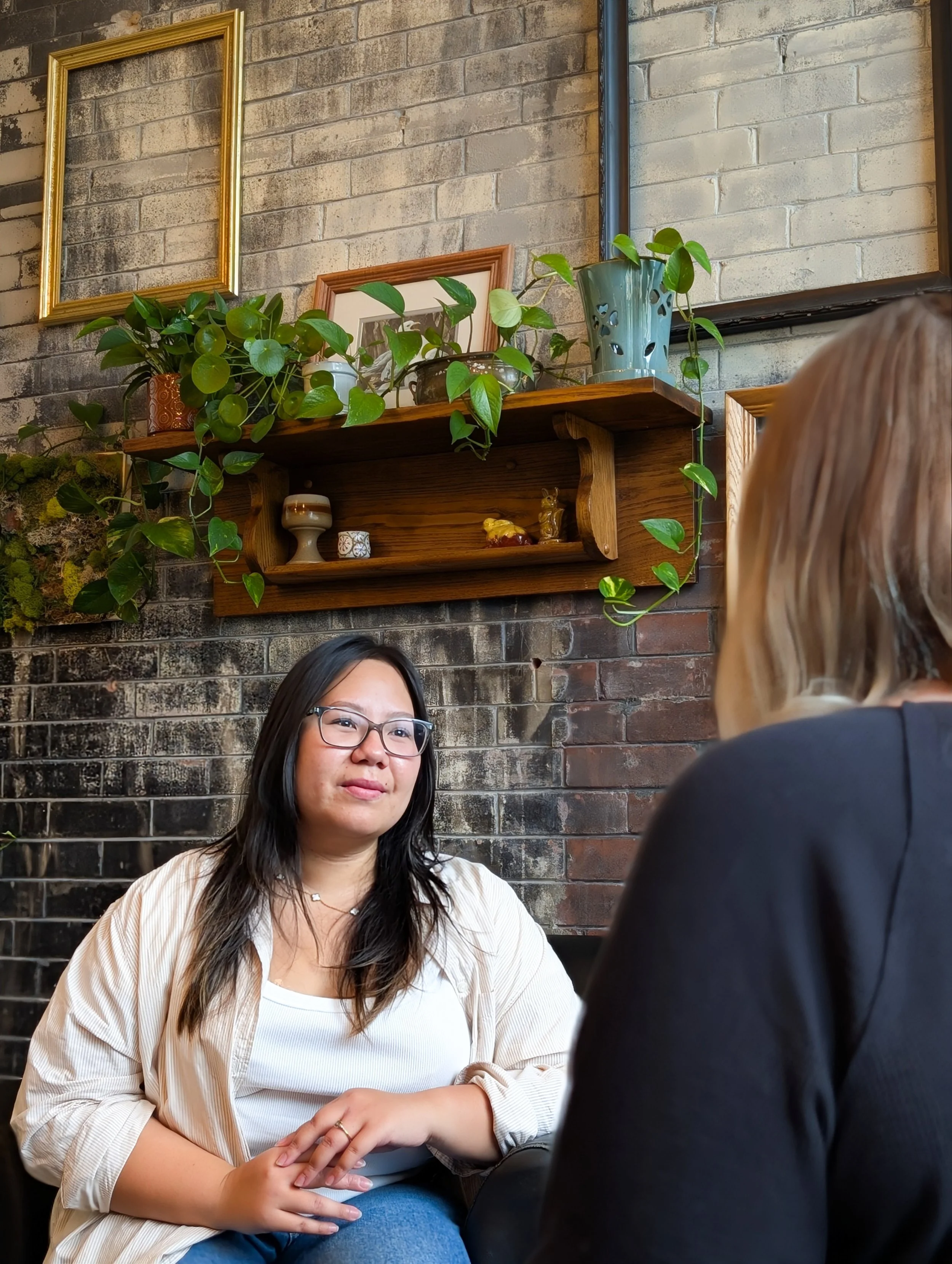Your Journey
Experiential and Emotion Focused
Do you ever feel like you are self-aware—you’ve done the reading, had the insights, maybe even been to therapy before—but still find yourself stuck, asking: Now what?
Insight is important, but real, lasting change often requires something deeper. In our work together, we’ll move beyond just understanding your patterns—we’ll help you feel them, befriend them, and ultimately shift them from the inside out.
Instead of just challenging your thoughts, we’ll explore where they come from, how they feel in your body, and what those parts of you might be needing. We’ll hold space for contradictions—your desire to grow and your fear of change, your self-protection and your longing for connection.
This kind of work takes courage. But it’s also where deep healing begins—when you stop just knowing and start experiencing what it means to reconnect with yourself.
Service
$150 for 50-min session
Individual therapy for 18+
Virtual Sessions only (video or telephone)
Areas of Focus
- Interpersonal Relationship Challenges
- Anxiety
- Family Conflict
- Life Transitions
- Mood Disorders
- Self-Esteem
- Stress Management
- Substance Use
- Depression
- Emotional Regulation
- Trauma
- Grief and Loss
- Panic Disorder
- Cultural Identity
- Intergenerational Trauma
Internal Family Systems
Internal Family Systems, is a gentle and powerful approach to therapy based on the idea that we all have different “parts” within us—like an internal family. Some parts might carry pain or fear, others try to protect us from getting hurt, and some help us get through daily life. These parts aren't bad or broken—they’ve developed for a reason, often to help us survive difficult experiences.
In IFS, we learn how to listen to these parts with curiosity and compassion, rather than judgment. Over time, this helps us build a stronger connection to our Self—the calm, wise, grounded part of us that can lead with clarity and care.
Instead of trying to get rid of parts of yourself, IFS helps you understand and work with them—so you can feel more whole, connected, and at peace within.
Emotion-Focused Therapy
Emotion-Focused Therapy (EFT) is based on the idea that emotions aren’t the problem—they’re actually part of the solution. Our emotions carry important messages about our needs, values, and experiences. But when we ignore, avoid, or get overwhelmed by them, we can get stuck in patterns that don’t serve us.
In EFT, we learn how to slow down and really listen to our emotions—so we can understand what they’re telling us, rather than just reacting to them. Some feelings might be rooted in past wounds, while others might be guiding you toward healing and change.
Psychodynamic
Psychodynamic therapy helps you explore how your past—especially early relationships and experiences—shapes the way you think, feel, and relate to others today. Sometimes we repeat patterns without even realizing it, or feel stuck in emotions we don’t fully understand.
This approach invites curiosity about what’s going on beneath the surface—your unconscious beliefs, defenses, and emotional habits—so you can better understand yourself and make more conscious choices.
It’s not just about insight, though. As we build a safe, trusting relationship in therapy, how you relate to me often reflects how you relate to others—and that becomes a powerful space for healing, awareness, and change.
-

Dialectical Behaviour Therapy (DBT)
DBT helps you hold space for two things that feel opposite—like acceptance and change. It teaches practical skills for managing emotions, setting boundaries, and staying present, especially in moments of distress or conflict.
-

Somatic Experiencing
Somatic therapy works with the body as a key part of healing. It helps you tune into physical sensations and nervous system responses, so you can process emotions, release tension, and feel more grounded and connected to yourself.
-

Cognitive Behavioural Therapy (CBT)
CBT focuses on the connection between your thoughts, feelings, and behaviors. By identifying and shifting unhelpful thinking patterns, you can respond to life with more clarity and choice.
-

Mindfulness
Mindfulness is about being present with what’s happening—inside and around you—without judgment. In therapy, it helps you build awareness of your thoughts, feelings, and body, creating space to respond instead of react.
Contact us
Interested in working together? Fill out some info and we will be in touch shortly. We can’t wait to hear from you!




